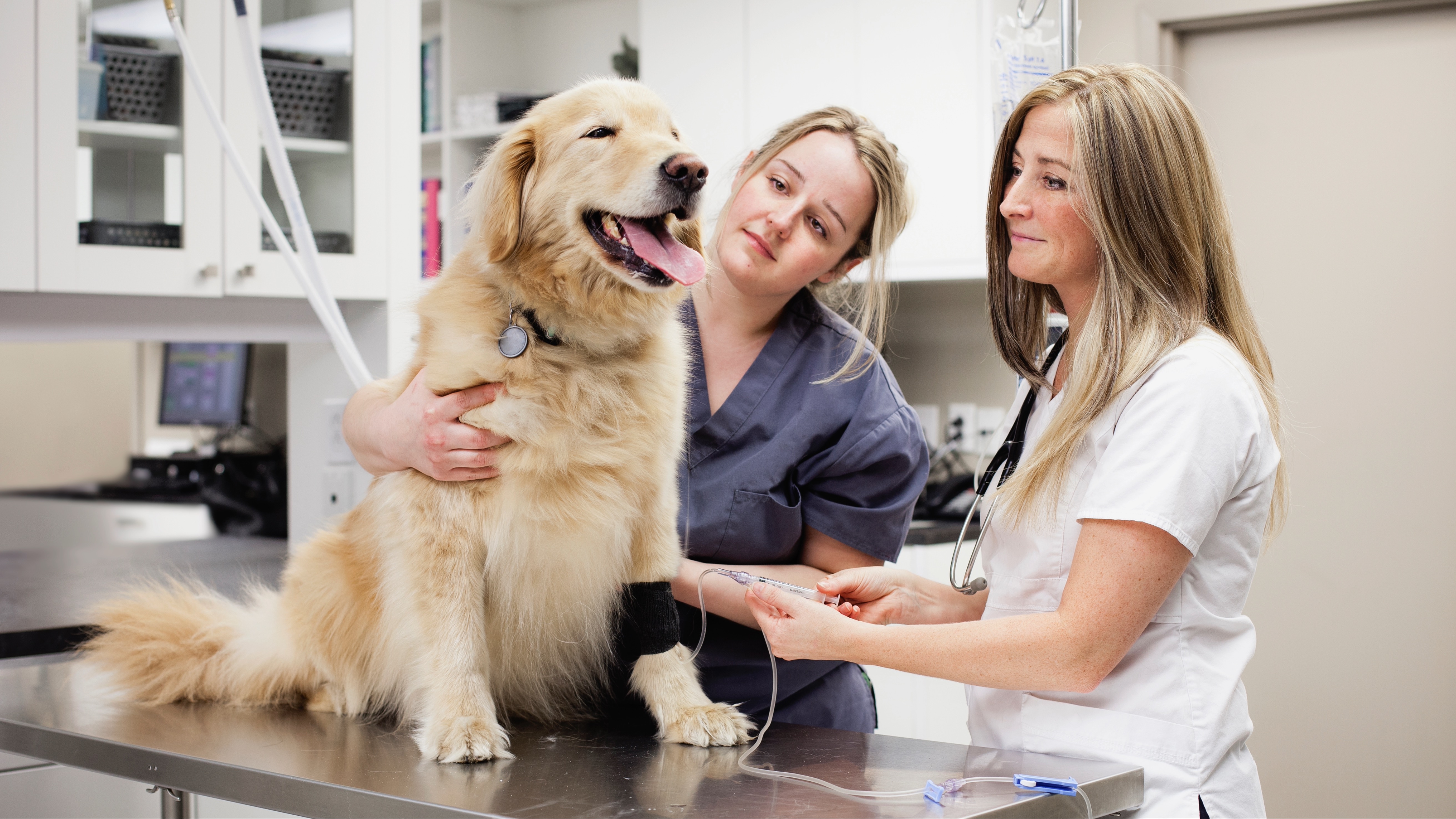
Vet visits are challenging for many dogs, which means those important trips can also be stressful for us humans too!
While the best dog treats may be enough to keep some canines calm, other pups become highly stressed and anxious whenever they set their paws into vet clinic.
Thankfully, expert trainer and behaviorist Renee Rhoades has shared three tips that can help make trips to the vet that little bit easier.
Read on to find out more!
1. Stay in the room with your dog: Unless it's an emergency, Rhoades recommends you stay in the room with your pup and here's why. "Dogs can go into behavioral shutdown when separated from you," she explains. "The vets always comment about how "good" my Nero is but the truth is he shuts down completely making it easier for the vets to do whatever they need to do. When he stays with me in the room I can watch his body language to know when he needs a break or comfort him."
2. Minimize unnecessary handling: "A special hot tip that I have is using your awesome camera on your phone to take pictures of things that you want your vet to see on your dog's body before you get to the vet," says Rhoades. "Yes, they still might want to see or touch that area, but this can also cut down on the physical handling the vet needs to do. Many dogs reach their limit when there is a lot of touching so cutting back on it could help your dog."
3. Use situational medication: While many of us would prefer to not medicate our pups unless absolutely necessary, a trip to the vet is one instance where Rhoades has seen medication come in handy.
"This one for me is a no-brainer... if your dog is just a little bit uncomfortable imagine the potential for them to feel even more comfortable with situational medication on board. I've seen many instances where dogs go from fearful to actively liking the vet because intervention was quick," she explains.
Anxiety in dogs is more common than you might think, so as well as trying the tips Rhoades suggests above, we highly recommend speaking with your vet if your pup continues to experience high levels of stress when they visit for routine or emergency medical procedures.







